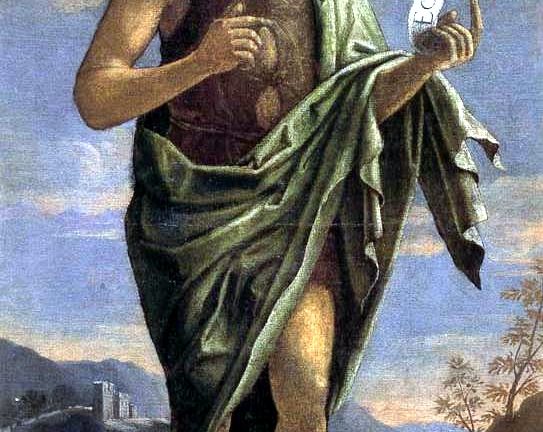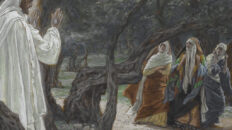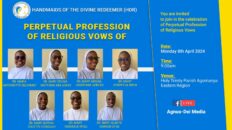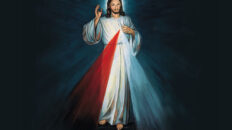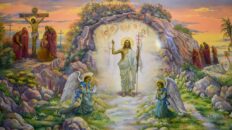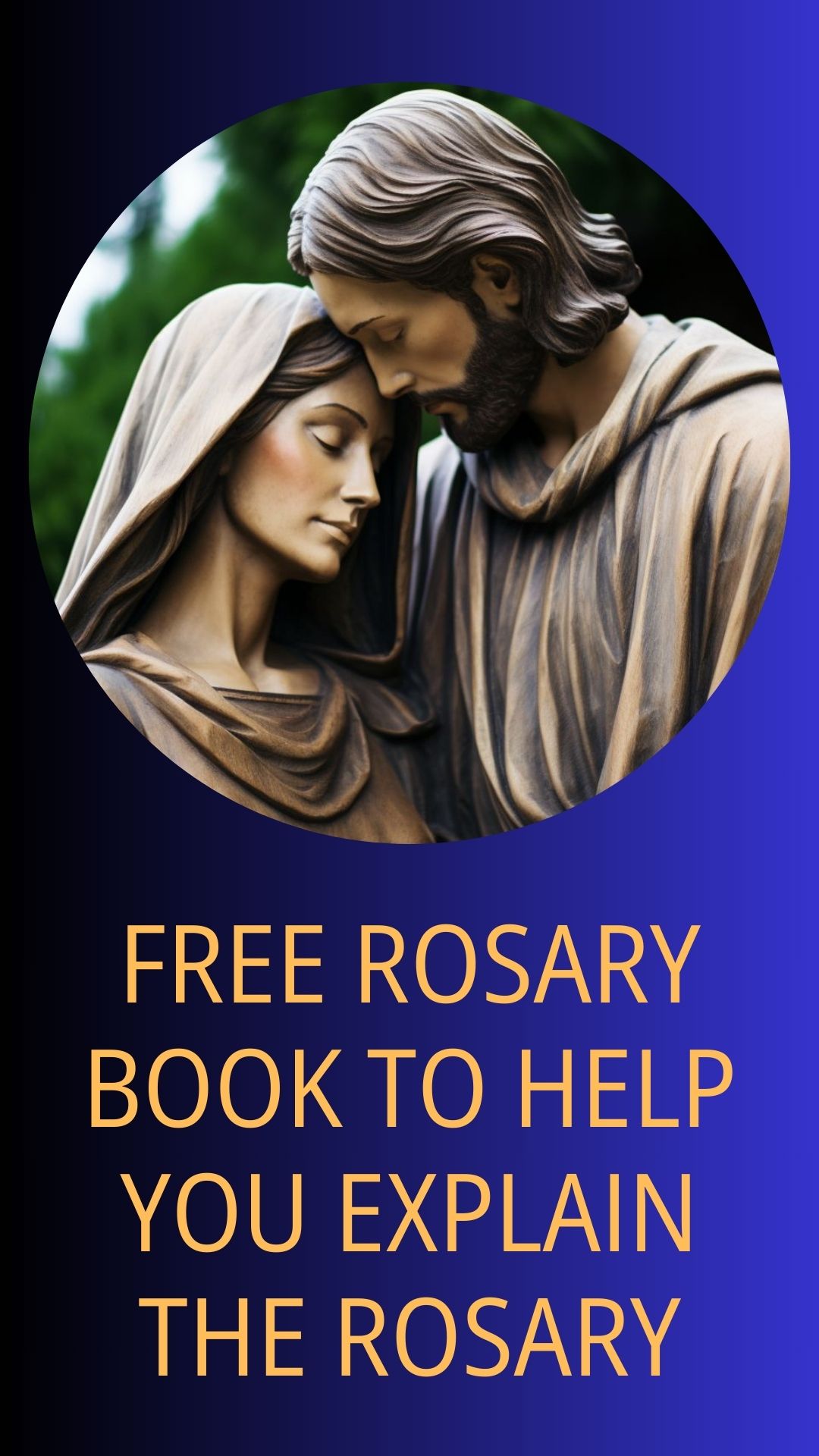
READINGS: Isaiah 49:1-6 /Ps. 139 / Acts 13:22-26 / Luke 1:57-66, 80.
Theme: The Birth of the Great Prophet
12th Sunday in Ordinary Time
Today is the Solemn feast of the birth of St. John the Baptist, the forerunner of our Lord and Saviour, Jesus Christ.
The birthday of a great personality is a great occasion and John the Baptist was a great prophet. Even before his conception, the angel Gabriel announced to Zachariah that John would be great in the sight of the Lord (Lk. 1:15). And no less a person than our Lord Jesus Christ himself testifies that John the Baptist was ‘more than a prophet’, and that ‘among those born of women there has not risen one greater than John Baptist’ (Mt. 11:9-11).
The feast of the birth of John the Baptist is so great an occasion that it has displaced the Ordinary Sunday Celebration.
Among all the saints, only Mother Mary, St. Joseph, St. Peter, St. Paul and St. John the Baptist have two (2) feats or more in a year. And only these five saints have solemn feasts (the highest type of feast in the Church). Moreover [‘leaving behind’ St. Joseph, St. Peter and St. Paul], only the births of Mother Mary and John the Baptist are celebrated as feasts. So, you see the high esteem the Church accords John the Baptist!
At the birthday party of a great personality, one is wiser who takes some inspirations from the good wishes and tributes showered on the ‘celebrant’. So let’s also take some inspirations from the life of John the Baptist.
WHAT ACCOUNTS FOR JOHN’S GREATNESS
The special way God prepared John, the unique mission God entrusted to him, and the faithful and successful manner he accomplished his mission, all these and more make John great. In fact, the first reading (Is. 49:1-6), though it was not a specific prophecy about John, sounds like a citation or tribute about the greatness of John.
THE PREPARATION:
The first reading says: ‘The Lord called me before I was born; from my mother’s womb he pronounced my name’. And this is certainly true of John the Baptist!
In fact, God considered John so special that his mother’s womb remained barren – that is, it was reserved for the conception and birth of only John (cf. Lk. 1:5-25).
Secondly even before his conception, God himself gave the name ‘John’ and it was announced by the angel Gabriel (Lk. 1:13). It was a unique name in their family, but his parents insisted on giving him this God-given name at the ‘naming ceremony’ (Lk. 1:60-61; part of today’s gospel reading).
Thirdly, even before John was conceived, God had designed that he would never take wine or strong drink; rather he would be filled with the Holy Spirit (Lk. 1:15).
Fourthly, even before John was conceived, God had designed his ministry or mission. So the angel announced to Zachariah: ‘He will turn many of the children of Israel to their God. He will also go before Him in the Spirit and power of Elijah . . . to make ready a people prepared for the Lord’ (Lk. 1:16-17).
THE SPECIAL MISSION
Thus the special mission of John was clearly spelt out even before his conception.
With such a mission of a unique forerunner to the Saviour of the world, John preceded Jesus in conception, birth, desert experience, fasting, ministry of proclamation and baptism (2nd reading) as well as in his arrest and dying for the truth.
EXECUTING THE MISSION
According to the first reading, the servant of God said the Lord ‘made my mouth a sharp sword’. The mouth of the Baptist was sharpened not by the ‘Spirit’ of the bottle, but by the Holy Spirit.
‘The prophet Elijah’, according to the book of Ecclesiasticus, ‘arose like a fire, his word flaring like a torch’ (Eccl.cus 48:1). So, John (who came in the spirit and power of Elijah) was very fiery in his words. For instance, he told the crowd that went to him for baptism: ‘Brood of Vipers who warned you to flee from the wrath to come? Therefore bear fruits worthy of repentance . . . every tree which does not bear good fruit is cut down and thrown into fire’ (Lk. 3:7-9).
Furthermore, the first reading says, the Lord made his servant ‘into a sharpened arrow’. When arrows were used in battles, they were aimed at individuals. Likewise, the sharpened arrow of John effectively struck, for instance, King Herod and Herodias.
The sharp sword of the Lord, according to the first reading, was hidden in the shadow of his hand, and the sharpened arrow in his quiver. Similarly the Baptist was prepared and hidden by the Lord in the desert until he began his ministry.
Again, the first reading says, ‘you are my servant . . . in whom I am glorified’. At a time when people thought John was the Messiah, he glorified Christ by saying: ‘I am not the one you imagine me to be and I am not fit to undo his sandals’ (Acts 13:25; Second reading). And somewhere else, John says, Jesus must increase and he himself must decrease (John 3:30). Moreover, earlier on John proclaimed Jesus as the Lamb of God who takes away the sins of the world (John 1:29, 35). In short, John’s successful mission prepared the people for Christ’s glorious ministry, crowned with his glorifying death, resurrection and ascension.
In addition, according to first reading, God told his servant: ‘It is not enough for you to be my servant to . . . bring back the survivors of Israel; I will make you the light of the nation so that my salvation may reach to the ends of the earth’. Thus, John’s ministry did not prepare only Jews to follow Jesus, but Gentile as well – as, for instance, we can learn from the preaching of St. Peter to the Roman Cornelius, and his household (Acts 10).
The final ‘tribute’ to John from the first reading is that, the servant of God said: ‘while I was thinking, “I have toiled in vain, I have exhausted myself for nothing” . . . all the while my cause was with the Lord, my reward with my God. I was honoured in the eyes of the Lord’. This certainly was the experience of John when he was imprisoned by King Herod and he sent his messengers to ask if Jesus was the Messiah. Thus, while John initially thought he had toiled in vain, Jesus praised him as being ‘more than a prophet’ and the greatest ‘of all men born of women’ (Lk. 7:18-28). And in dying for the truth, God has eternally honoured John in heaven!
SOME LESSONS AND CONCLUSION:
Beloved, we have seen how great John the Baptist is, but God has not left us out. There is good news for us: Jesus says, God is offering us something greater than John experienced on this earth. Thus, after saying John is the greatest of all men born of women, he added: ‘yet the least in the kingdom of heaven is greater than him’ (Mt. 11:11).
In other words, of all men born into this world, John is the greatest, but ‘birth’ or entrance into the kingdom of heaven – that which God is offering us – is greater than what John experienced on this earth!
John the Baptist maintained what God offered him by doing a lot of things, but I will highlight only four of them: humility, leading others to Christ, courageously defending the truth, and steadfast faith [when imprisoned].
May we also maintain our birth into heaven by humility, leading others to Christ, courageously defending the truth, and steadfast faith!
Beloved, I therefore pray:
- May we become humbler the more we achieve in life, amen!
- May we eagerly win souls for Christ, the King of kingdom, amen!
- May we always courageously stand by the truth, for Christ is the Truth, amen!
- May our faith grow stronger even when we experience difficulties, amen!
- And eventually, may we enter heaven and enjoy eternal happiness and peace! Amen!
By Very Rev. Fr. John Louis


